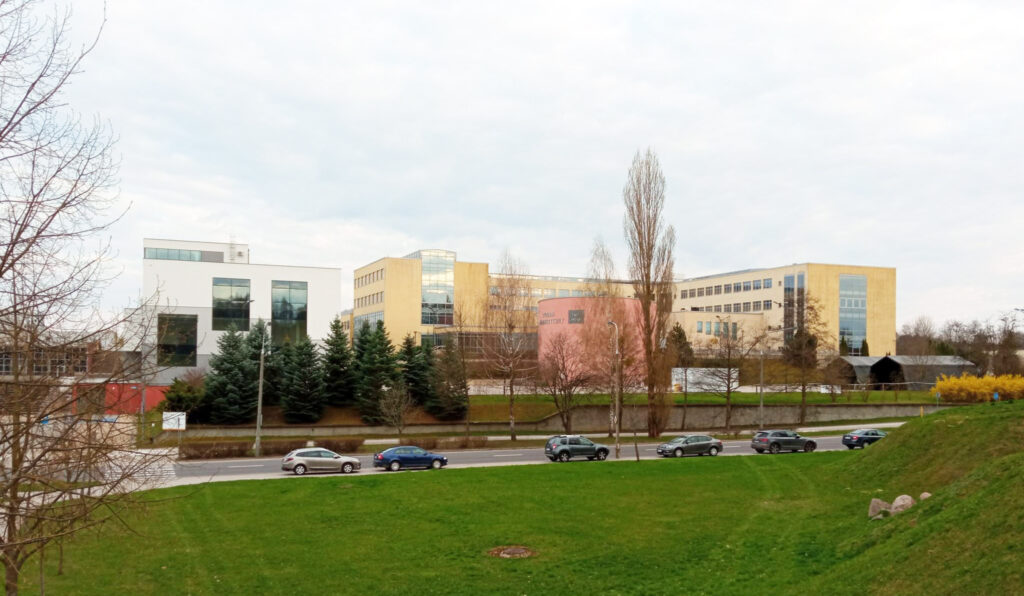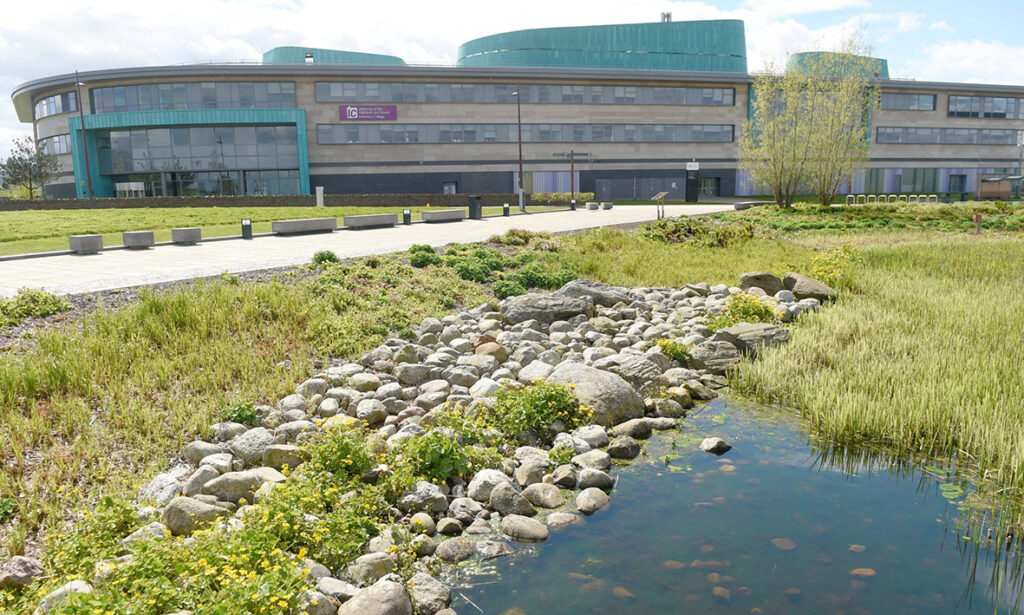Studenci w Szkocji i w Polsce zamieniają się wykładowcami.

W ostatnim roku w szkolnictwie zaszły duże zmiany. Wiele lekcji musiało odbywać się zdalnie i chociaż okazało się to być dużym obciążeniem (nie tylko dla szyi i ramion), pojawiło się też sporo korzyści. Na przykład nie musimy przebywać w tym samym pomieszczeniu, a nawet w tym samym kraju – cały świat może być naszą klasą i salą wykładową.
Niedawno Uniwersytet Warmińsko-Mazurski w Olsztynie (UWM) rozpoczął współpracę z University of Highlands and Islands (UHI), w celu wymiany pomysłów i… wykładów.
Wszystko zaczęło się, kiedy UWM nawiązał kontakt z UHI. Głównym tematem była propozycja kooperacji. Pierwszym pomysłem było przeprowadzenie kilku gościnnych wykładów za pośrednictwem platformy Zoom. Zainteresowanie Dr. Lesley Mickel (UHI) wzbudziła współpraca Trevora Hilla z wydziału angielskiej literatury i kultury UWM z teatrem polskim “Węgajty”. Dr Mickel poprosiła Hilla, żeby opowiedział studentom teatru o tej współpracy, o teatrze „Węgajty”, i o polskim teatrze w ogóle.
„Bardzo chciałem to zrobić, bo teatr Węgajty nie jest znany w Wielkiej Brytanii. Zabawne, bo najpierw pracowałem z nim podczas badań na studiach podyplomowych na Uniwersytecie w Edynburgu, a następnie przeniosłem się do Polski, aby tutaj zamieszkać. Dzięki rozmowie ze studentami UHI, moje badania zatoczyły koło i wróciły do Szkocji.”
Rezultat był bardzo pozytywny. Jak mówi Dr. Mickel : “Oprócz rozmowy o jego współpracy z teatrem, dodatkowo wywiązała się dyskusja na temat ludowej tradycji kolędowania wielkanocnego.”
“Studenci uznali owe seminarium za wyjątkowo pouczające i interesujące”.
Dla równowagi Dr. Mickel została zaproszona do zaprezentowania literatury renesansowej, jako że jest to jedna z jej specjalizacji. Ten wykład także odniósł spektakularny sukces, a Dr Dorota Gładkowska wraz ze studentami była zachwycona. „Ten inspirujący wykład skupiał się na wybranej wczesnej i późnej poezji renesansowej, wliczając w to dzieła: Johna Wyatt’a, Surrey’a, Philipa Sidney’a, Williama Shakespeare’a, Benjamina Jonson’a, Christophera Marlowe’a i Johna Donne’a. Uczestnicy zajęć wykazali dużą dociekliwość i uznali wykład za naprawdę fascynujący.”
Kontakt i wymiana między uniwersytetami okazały się być przyjazne i owocne. Uczelnie miały okazję podzielić się specjalistyczną wiedzą z nowymi odbiorcami. Chociaż pandemia utrudniła planowanie wielu rzeczy, nie przeszkodziło nam to w nawiązaniu nowych znajomości i dzieleniu się pomysłami. Wiedza gości była inspiracją do zmian w nauczaniu i do wprowadzenia nowych idei. Miejmy nadzieję, że jest to jedynie pierwszy krok do szerszej współpracy uniwersytetów, które łączy zainteresowanie m.in. szkocką literaturą oraz kulturą. Zobaczymy co przyniesie przyszłość!
Words: Trevor Hill Translation: Daria Geleta
Students in Scottish Highlands and Poland swap lecturers.

The last year has seen a big change in education, with many classes having to be held remotely. While this has been a bit of a strain (not least on the neck and shoulders), there have been some interesting benefits. One of these is that if we don’t need to be in the same room, we don’t even need to be in the same country; the world is our classroom and lecture hall.
Recently the University of Warmia and Mazury in Olsztyn (UWM) teamed up with the University of Highlands and Islands (UHI) to share some ideas and swap a few lectures. It started when UWM contacted UHI about possible collaborations. One of the first suggestions was that perhaps a few guest lectures via Zoom would be fruitful. Dr Lesley Mickel of UHI was interested to hear that Trevor Hill of UWM’s English literature department had worked with a Polish theatre company called Teatr Węgajty and invited him to speak with a class of theatre students about the company and Polish theatre in general.
“I was happy to do it as Węgajty theatre is not so widely known in Britain. The funny thing was that I worked with them as part of my post-grad research at Edinburgh Uni, and later moved over to Poland to live. Speaking to the UHI students, it was almost as if the research was coming back full-circle to Scotland”.
It certainly seemed to do the job, as Dr Mickel commented, “In addition to talking about his work with the theatre, there was a further discussion of the folk performance tradition of Easter caroling. The students found this an extremely interesting and informative seminar”.
“The students showed great
interest and
found it truly informative.”
With the ball now rolling, Dr Mickel was invited to present on Renaissance literature , one of her specialities. Once more, the guest lecture was a great success and Dr Dorota Gładkowska and her students were thrilled. “This inspiring lecture focused on selected early and late Renaissance poetry, including John Wyatt, Surrey, Philip Sidney, William Shakespeare, Benjamin Jonson, Christopher Marlowe and John Donne,
and provided a deep insight into its socio-political context. The students showed great interest and found it truly informative.”
The initial contact and exchange between the two universities have been friendly and fruitful, giving both departments a chance to share specialized knowledge with a new audience. While the pandemic has made it difficult to plan things, it hasn’t stopped us from making new friends and sharing ideas. Both sets of students benefited immensely from the knowledge of the guests and it made a refreshing change to have new ideas and input into the courses. Hopefully, this is just the first step towards greater cooperation between the two universities as there are a number of shared areas of interest, including Scottish literature and culture. Let’s see what the future holds.
Words: Trevor Hill
